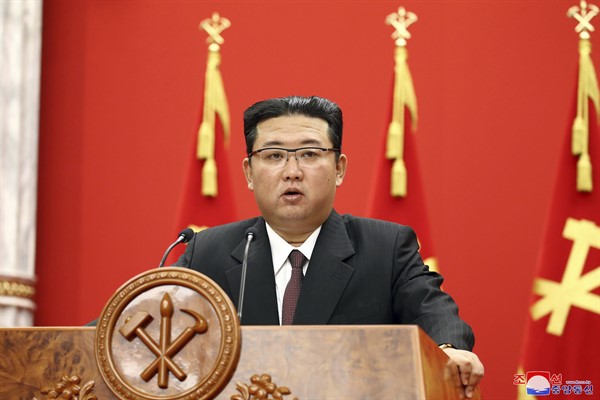In the final months of his single term in office, South Korean President Moon Jae-in is making a strong push to formally end the Korean War. As part of his efforts, Moon is reportedly seeking a summit between the leaders of the four main participants in the conflict—the United States, China and the two Koreas—to coincide with the Winter Olympics in Beijing. In response, the North has signaled its openness to the proposal, provided its conditions are met.
Setting aside for a moment the policy debate over whether that would be a good idea, it is worth considering the logical end of such a peace treaty: Korean reunification. While many in the West assume reunification of the two Koreas would occur on Seoul’s terms, history and recent developments on the peninsula suggest that might not be the case. Since the Korean War ended with a truce in 1953, North Korea has never given up its goal of reunifying the peninsula on its own terms.
In July 2012, months after Kim Jong Un ascended to power in Pyongyang, a revolutionary hymn dedicated to Kim began airing on North Korean state-run media. Entitled “Onwards Toward the Final Victory,” the propaganda song’s lyrics emphasized national pride and loyalty to the Kim family regime: “Let’s go, Great Baekdu-mountain nation, by the calling of the political party. Onward, onward to the final victory.”

